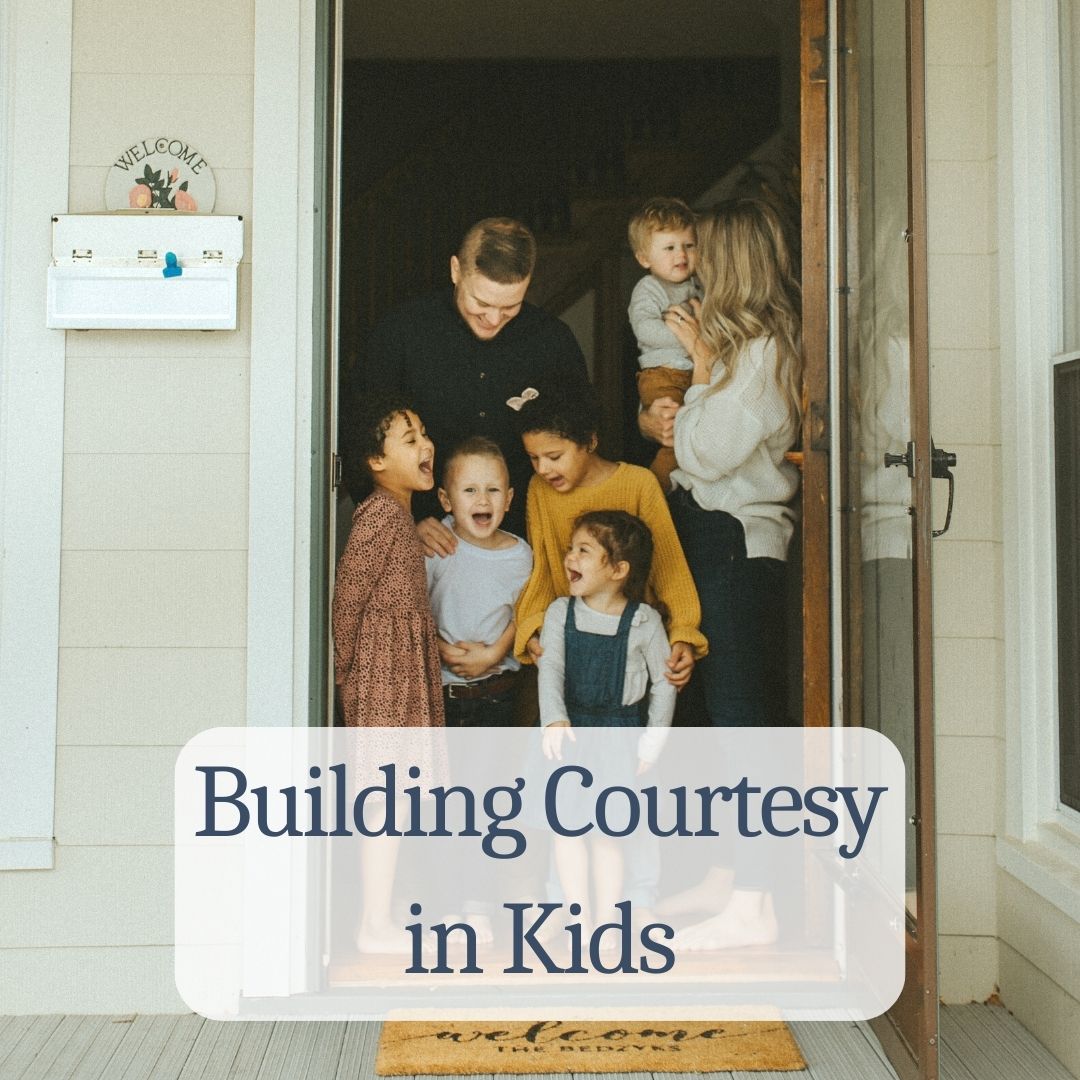As a mother of five spirited littles, I've been asked a few times how I manage to raise children who are polite and courteous in public settings, especially when they're pushed out of their comfort zones. We have had a huge emphasis in our home on teaching out children the values of kindness, respect, and courtesy. From church to public events, here’s how I go about it:
1. Leading by Example:
Children, like little sponges, absorb the behavior they observe. As a parent, if you display courtesy, there's a high chance your children will pick up that behavior. Whether it's saying "please" and "thank you", holding the door for someone, or listening patiently when someone is speaking, it’s essential to be the role model you wish for them to follow.
2. Role-playing Scenarios:
In the car, before heading into a public places or attending church, we play a game where we simulate possible situations they might encounter. This could be anything from meeting someone new, greeting your host or thanking our host, or even how to react if someone is rude to them. This "rehearsal" helps them understand the appropriate behavior and responses.
3. Setting Clear Expectations:
Before we head out, we discuss our expectations. Whether it's speaking softly, not running around, or ensuring they greet everyone, laying out expectations beforehand can significantly reduce any uncertainties and potential misbehaviors.
4. Praising Good Behavior:
It's easy to focus on correcting misbehavior, but it’s equally important to recognize and praise good behavior. When one of my kids holds the door for someone or says "excuse me" without being prompted, or thanks our host for having us over, they get verbal praise. This positive reinforcement encourages them to continue behaving courteously.
5. Teaching Empathy:
Understanding and respecting others’ feelings and perspectives is a cornerstone of courtesy. Through stories, discussions, and daily interactions, I try to instill empathy in my kids. When they can put themselves in someone else's shoes, it becomes easier for them to be polite and considerate.
6. Provide Opportunities to Interact:
Pushing my kids slightly out of their comfort zones has always been beneficial. This could be as simple as asking them to greet a newcomer in church, thank the cashier at a store, or offer to help someone in need. Such interactions allow them to practice their courtesy skills in real-world situations.
7. Immediate Feedback:
If one of my kids forgets their manners or behaves inappropriately, I address it right away, but in a gentle manner. This immediate feedback helps them recognize their mistake and offers an opportunity to correct it on the spot. I also find this can help our friends see our expectations played out.
8. Open Conversations:
At the end of the day, we often discuss our experiences. If there were challenging situations or moments of pride, we share them. This open dialogue allows us to learn from each other and continuously strive for improvement.
9. Understanding Each Child:
Each child is unique. What works for one may not work for another. Taking the time to understand their individual temperaments and needs ensures that I approach each child in a way that resonates most with them.
10. Patience:
It's essential to remember that kids are still learning. There will be moments when they forget their manners or act out. As a parent, maintaining patience and offering gentle reminders can go a long way.
Raising courteous children doesn't happen overnight. It requires consistent effort, love, and understanding.





